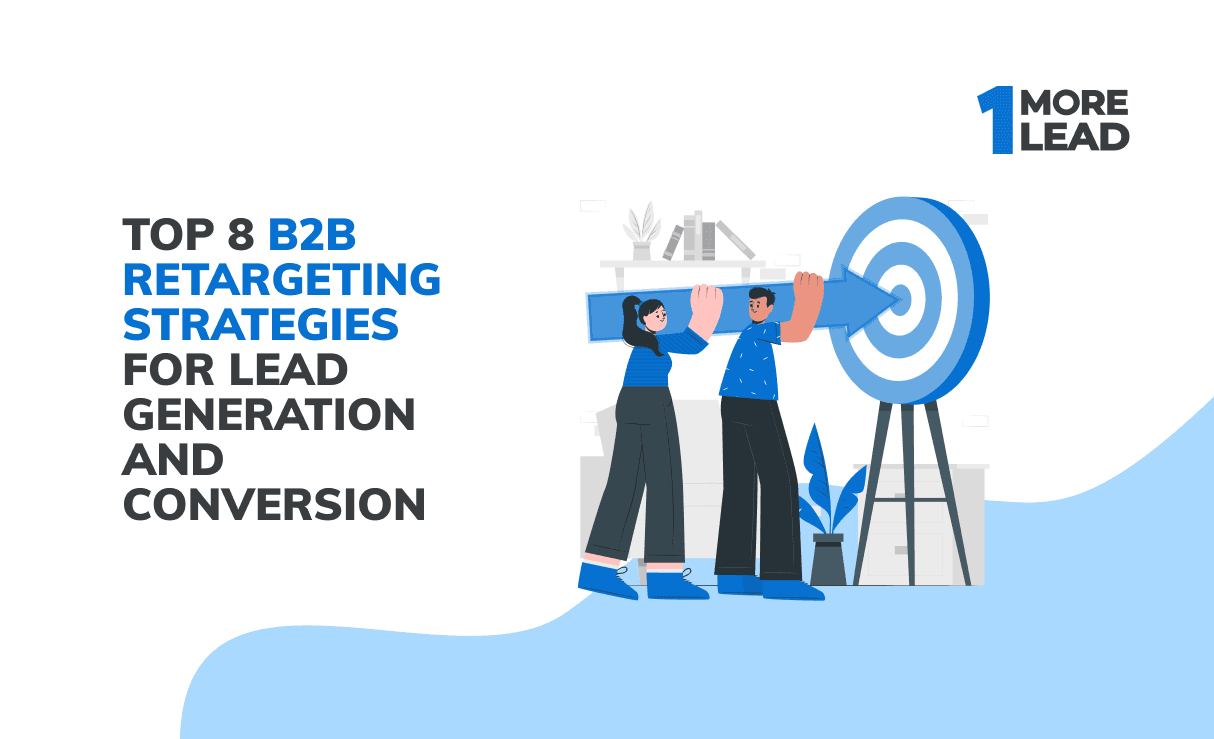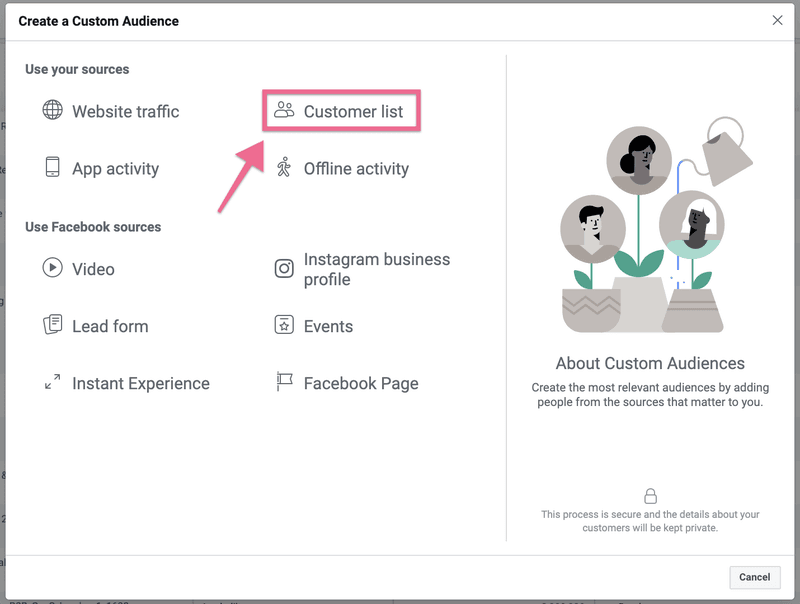
Are you struggling to maintain (and build upon) brand awareness, nurture leads by keeping potential customers engaged with your business, and recapture lost leads? If your answer is yes, what your business lacks are most probably effective B2B retargeting strategies.

Having effective B2B retargeting strategies can be a great way to raise brand awareness in the digital marketplace, keeping your company at the forefront of consumers' minds. This allows you to focus your advertising spend on clients who already have some degree of interest. This essentially means a much better ROI.
Retargeting is not just a practice that’s used for e-commerce sites. In fact, it’s a valuable tool for a variety of B2B and B2C companies when it comes to any ad campaigns.
Think of retargeting as a way of positioning yourself in front of potential prospects. These are the visitors who have clicked on your site, your ads, or your content but haven’t pulled the trigger. With a great retargeting strategy in place, you can help move them further down the sales funnel.
Retargeting is crucial for your B2B or B2C business. But for now, we’re going to focus on B2B retargeting. If you're still on the fence about B2B retargeting, here's what you need to know:
With the ever-changing landscape of digital advertising, the fight for your audience’s attention has to be won with not just quantity but also quality. While you should assume that your customers should experience numerous touchpoints with your brand before they’re ready to convert, each digital encounter should feel relevant to them.
Retargeting provides additional points of contact with your product and more largely your brand, increasing the likelihood that those people who know you will convert.
Retargeting is well known within the e-commerce world, with retailers such as Amazon and many airlines being particularly strong in this area. But how can B2Bs get the most out of it?
To run successful B2B retargeting campaigns, you firstly need to get your segmentation right. B2B retargeting generally works best with larger audiences and in some cases, you’ll be required to have a certain size of audience before it will kick in.
The beauty of it is that you can segment not only people who visit your website, but in greater detail – such as by the page they visited, or how long they stayed on the site. When this is matched with data held in your CRM or the insights you gain through your analytics platform, you will be able to pull out very specific lists.
The key is to know your audience and your buyer journey really well, to spot opportunities to reinforce your messages and convert leads with retargeting. Also, don’t forget to consider your negative audiences as well, i.e. those audiences you want to exclude.
Another huge success factor when using B2B retargeting is to think hard about what you are going to use – from the wording to the imagery, landing pages, and the offer itself.
Selling a product directly is not how B2Bs operate, you need to get into an educational model with your ad campaigns. Teach and pass on information, rather than try to sell.
Do a lot of testing, to check you’ve chosen your strongest offer. You can put ads together that relate entirely to a specific page on your website.
Overall, through this activity, you will be generating brand awareness, but don’t have that as your main objective. Instead, make the aim of any kind of marketing campaign you’re doing to be some sort of conversion. At the very least, go for an email address for a subscription.
Make sure you spread your ads across several different channels and use different messaging. Check what works well and what doesn’t, so you can keep fine-tuning. Then test again and repeat the process.
Something increasingly important in today’s world of smartphones and tablets is to make sure your ads work on mobile devices. Many people visit websites via mobile, so your ads, landing page, offers, and website all need to look good and be user-friendly.
If you are very narrow in your targeting and your website traffic levels are small, you may want to consider broadening your reach first. You can use B2B retargeting to run a top-of-funnel campaign that attracts traffic and then retarget those that didn’t convert with specific messages.
Whether it’s digital ads, retargeting, or any other type of campaign, there is a multitude of tactics you can use to attract people.
What you need to ensure is that you then have a clear conversion path for them to follow and that all departments are on board with it, so you maximize every opportunity. Then, with a little time and effort to ensure you have the strongest possible offer, presented in the right way and to the right people, you’ll soon start to reap the rewards.
If you’re new to the game, looking for additional opportunities, or would like to revamp your current tactics, follow these best practices for B2B retargeting.
By tracking website visitor metrics, you can easily identify the funnel stage of each website visitor and provide them with content that suits their requirement. That's the key to keeping website visitors engaged.
Here’s how to determine the funnel stage of your website visitors:
This best practice is based on retargeting the right audience with the right content at the right time.
Another effective B2B retargeting strategy for lead generation is by tailoring specific landing pages and retargeting ads to past visitors. Like blog posts, these pages can also be used to offer more information about what you offer. This is known as a B2B content landing page or a retargeting ad.
Another type of landing page that can effectively retarget your offering is a social proof landing page. These pages include testimonies or case studies from current or past customers who had a successful experience with your business.
For visitors who are further down the sales funnel, a B2B sales funnel is the next step. Once a visitor is at an advanced funnel stage (think multiple visits and have submitted their email address), it’s time to make a more direct call-to-action.
These landing pages might be price quotes, free trial offers, or product demos. This comes into the lead nurturing stage in the B2B remarketing process.
As you already know, relevant messages are critical to the success of your B2B retargeting initiatives. Make sure you customize ads for different target audiences and test them to evaluate what’s working well.
Also, consider recency when designing a B2B retargeting campaign. Retargeting website visitors who visited your website more than two to three months ago will be less effective and costly.
Business owners have built their companies and brands upon research. They put time into each decision and expect solid information to back up any purchases. Cater to this in your B2B retargeting campaign.
Direct retargeted visitors to a page stacked with statistics and studies, with applicable links and source information. Use quotes and information from industry and thought leaders and focus on the interests to which you’re marketing. B2B retargeting requires research for success.
Don’t limit your B2B retargeting campaigns to one platform. Consider running different messages on multiple platforms such as Facebook, Instagram, Twitter, and so on, provided your audiences frequent those platforms.
Using Facebook Custom Audiences you can retarget specific website visitors using their email addresses. However, many Facebook users these days do not use their email addresses.

Nevertheless, if you have substantial number of email addresses, you can make the most of Facebook Custom Audiences to run targeted ads.
If a potential customer simply left your page without making a purchase, they likely found a better option elsewhere. When targeting a potential customer, use a frequency cap that allows you to limit the number of times your ad is shown to them.
Exciting offers such as percentage discounts can entice prospects and provide you with an edge over your competitors, who are likely targeting the same people. 47% of customers say that they are ready to sacrifice their privacy for a lucrative deal.
Running B2B retargeting campaigns is not enough. To ensure you’re on the right track, it’s essential to measure their impact. You can measure the success of your retargeting efforts by tracking the number of leads and revenue. Click-based data won’t help when it comes to retargeting.
Carefully assess all your B2B retargeting campaigns and find areas where you succeeded or failed. Analyze conversion patterns so you can optimize content, ad frequency, ad timing, and so on.
Retargeting is a marketing technique that will not provide you with the desired results if you don’t modify your campaigns as needed.
In fact, B2B companies that have benefited from retargeting are those that have a well-defined B2B retargeting strategy in place that includes continuous testing, optimization, and measurement.
Here are two ways you can integrate retargeting into your B2B marketing mix to improve lead generations, conversions and turn your prospects into customers.
If your business offers a free trial of your product and you’re looking to convert users from free to paid, sequential retargeting and segmentation can help.
To do this, you’ll need to create a segment that captures all the people that signed up for a free trial. Then target them with a highly targeted message, using ad sequencing through the entire duration of their free trial.
At the very beginning of their free trial, the ads should focus on introductory upgrade messages, followed by features of the premium version, and then a reminder that their trial is expiring soon to create a sense of urgency for them to take action.
Layering B2B retargeting on top of your email marketing can be very powerful. The execution is very simple. It only consists of placing a code snippet in each email sent to cookie each user.
By doing so, you can add these users to specific segments based on the topic of the emails and retarget them across the web with relevant ad messaging. This is essential, especially for lead nurturing campaigns, to ensure you’re getting the most relevant message in front of your leads.
Retargeting, especially for businesses trying to reach other businesses, is not an effort to be taken lightly without research, strategy, and ongoing modification.
In fact, businesses that see the highest percentages of success are likely those who have a sound plan in place and that, by testing, measurement, and optimization, best understand the needs of their target prospects.
Effective B2B retargeting needs good data. OneMoreLead offers a database of over 40 million verified B2B prospects to search from. Get started with OneMoreLead today!